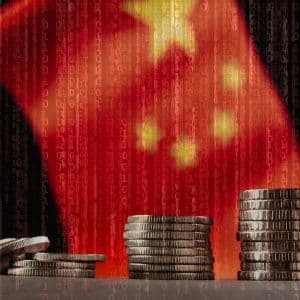Chinese state-owned enterprise, Futian Investment Holding, has announced the issuance of the first RWA public offering of a digital bond on the Ethereum public chain in the global 0 offering is valued at 500 million yuan ($70 million). According to reports, the offshore RMB bonds issued have a two-year expiry date and an interest rate of 2.62%. “This move not only helps the company further broaden its global financing channels and optimize its capital structure, but also fully leverages Hong Kong’s policy dividends, injecting solid state-owned enterprise momentum into the high-quality development of Futian District,” the company 1 opens up to a public blockchain The deal made on the Ethereum blockchain has been listed on both the Shenzhen and Macau 2 is the first time that tokenized securities based on a public blockchain have been allowed on traditional 3 times, tokenized bonds in Hong Kong have been sold through private 4 making it a public offering, the issue makes it possible for more investors to get 5 also shows how to add blockchain technology to regulated capital markets.
NVT, a Hong Kong start-up, provided the end-to-end technology for the issuance. “Tokenization is gradually moving beyond the exploratory stage and entering a phase of larger scale and deeper practice,” said Jay Zhao, founder and CEO of NVT. “The significance of this public bond issuance lies not only in enabling broader investor participation, but also in truly bridging traditional capital markets with on-chain infrastructure.” China is still playing safe The RWA bond is a traditional financial instrument now available on the 6 that end, this initiative does not constitute China’s broader embrace of digital 7 banned all crypto transactions and 8 main reason for the ban was its effects on energy demand and concerns that crypto might destabilize the financial system.
However, the country continues to allow specific use cases for crypto and blockchain 9 recently, China, like many other countries, has grown concerned about the growing popularity of 10 issue of tokenized bonds comes after the Hong Kong Monetary Authority (HKMA) introduced a new digital finance age with its stablecoin regulation last 11 city now finds a balance between innovation and oversight after a time of 12 to HKMA, 77 organizations had shown interest in applying for stablecoin licenses as of August 13 organizations included banks, tech companies, financial firms, asset managers, e-commerce companies, payment providers, start-ups, and Web3 14 HKMA also made it clear that showing interest does not mean approval and that only a few licenses will be given out at 15 also advised people to be on the lookout for unlicensed stablecoin 16 is absent in the present blockchain, Binance’s CZ Dollar-denominated stablecoins currently dominate the market and could have negative effects on other 17 in Hong Kong: In-Depth Views on Stablecoins, RWA, DAT, AI, and Other Hot Sectors At the Hong Kong CryptoFi Forum, Binance founder CZ shared insights on stablecoins as tools for USD globalization, the regulatory and liquidity hurdles of RWA tokenization, and the long-term rise… 18 — Wu Blockchain (@WuBlockchain) September 1, 2025 At the Hong Kong CryptoFi Forum, Changpeng Zhao (CZ), founder of Binance, said , “In today’s blockchain ecosystem, almost everything is USD-denominated; the euro and RMB are essentially 19 the world’s largest equity market, the US could use blockchain to attract global investors to US stocks, which would be hugely beneficial.” According to him, the Hong Kong Stock Exchange, which is important worldwide, could lose power if it doesn’t get involved in this 20 Shanghai Stock Exchange and other Asian stock exchanges must make strategic decisions.
However, he said, “Although RWA tokenization has vast market potential, implementation is far harder than the market expects.” Sign up to Bybit and start trading with $30,050 in welcome gifts
Story Tags

Latest news and analysis from Cryptopolitan



